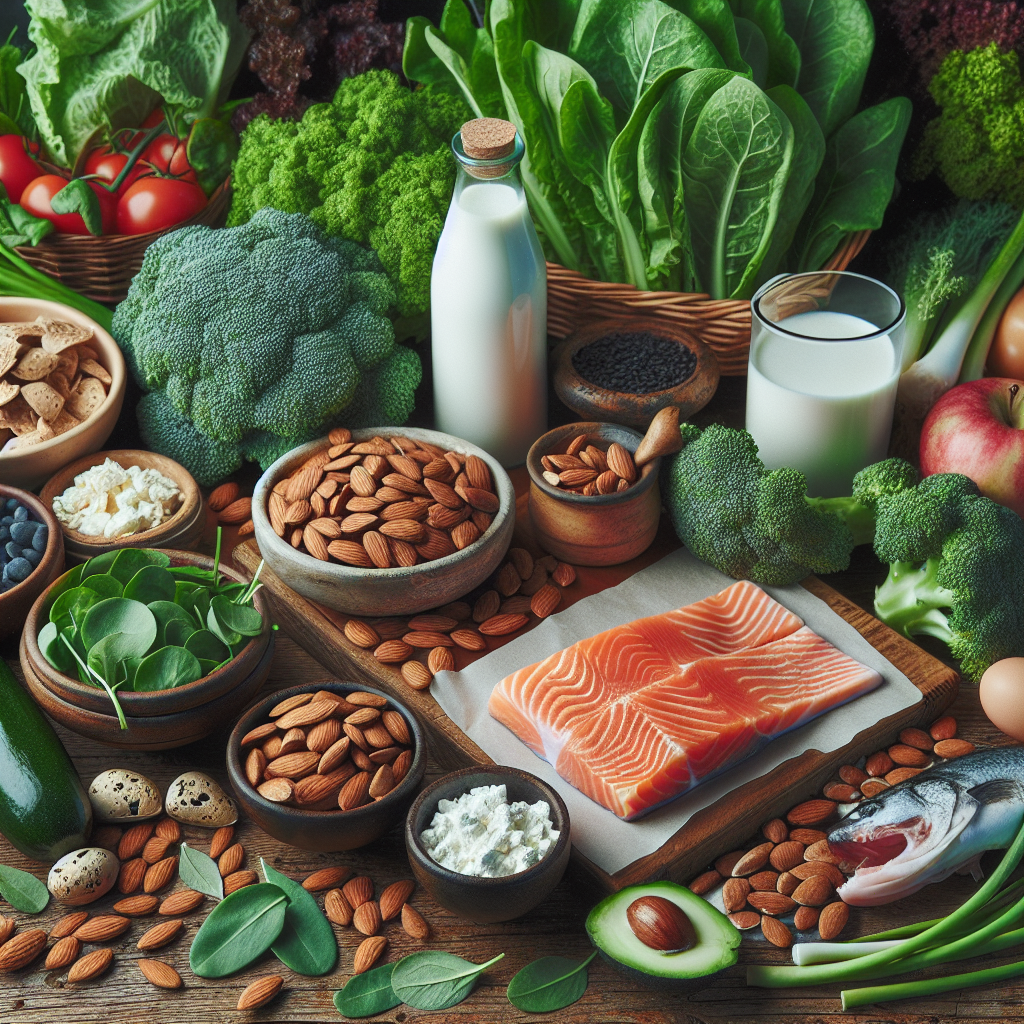The Importance of Organic Food for Bone Health
Strong bones are the foundation of a healthy body, supporting mobility and protecting vital organs. While many factors contribute to bone health, nutrition plays a critical role—especially when sourced from organic foods. Organic produce, dairy, and other natural sources provide essential nutrients without synthetic pesticides or additives, ensuring better absorption and long-term benefits.
Why Organic Matters
Organic farming practices prioritize soil health, which leads to nutrient-dense crops. Studies suggest that organic foods often contain higher levels of vitamins, minerals, and antioxidants compared to conventionally grown alternatives. For bone strength, this means better bioavailability of calcium, magnesium, vitamin K2, and other key nutrients.
Essential Nutrients for Bone Strength
Building and maintaining strong bones requires a combination of nutrients that work synergistically. Here are the most important ones and their roles:
Calcium
Calcium is the primary building block of bones, accounting for about 99% of the body’s calcium reserves. Without enough calcium, bones become weak and brittle.
Vitamin D
Vitamin D enhances calcium absorption in the intestines. Without sufficient vitamin D, the body struggles to utilize dietary calcium effectively.
Magnesium
Magnesium helps convert vitamin D into its active form, which in turn supports calcium absorption. It also plays a role in bone mineralization.
Vitamin K2
Vitamin K2 directs calcium to the bones and teeth rather than allowing it to accumulate in soft tissues like arteries.
Phosphorus
Phosphorus works with calcium to strengthen bone structure. However, balance is key—too much phosphorus (often from processed foods) can weaken bones.
Top Organic Foods for Strong Bones
Incorporating these organic foods into your diet can naturally enhance bone density and overall skeletal health:
Leafy Greens (Kale, Spinach, Collard Greens)
Dark leafy greens are packed with calcium, magnesium, and vitamin K. Kale, for example, contains about 150 mg of calcium per cup, along with bone-supportive antioxidants.
Organic Dairy (Milk, Yogurt, Cheese)
Grass-fed organic dairy is rich in calcium, phosphorus, and vitamin K2. Fermented options like yogurt also provide probiotics, which may improve nutrient absorption.
Almonds
A handful of almonds provides calcium, magnesium, and healthy fats. Almond butter is another great way to incorporate this nutrient-dense food.
Sesame Seeds
Just one tablespoon of sesame seeds offers about 88 mg of calcium. Sprinkle them on salads or blend them into tahini for a bone-boosting condiment.
Wild-Caught Salmon
Salmon is an excellent source of vitamin D and omega-3 fatty acids, which reduce inflammation and support bone remodeling.
Organic Eggs (Pasture-Raised)
Egg yolks contain vitamin D, while the whites provide protein for muscle support, which indirectly benefits bone health.
Lifestyle Tips for Optimal Bone Health
While diet is crucial, other lifestyle factors also contribute to strong bones:
- Weight-Bearing Exercise: Activities like walking, jogging, and strength training stimulate bone growth.
- Sun Exposure: Just 10-15 minutes of sunlight daily helps the body produce vitamin D naturally.
- Limit Processed Foods: Excess salt, sugar, and soda can leach calcium from bones.
- Avoid Smoking & Excessive Alcohol: Both can interfere with calcium absorption and bone regeneration.
Final Thoughts
Choosing organic foods for bone health ensures you’re getting the highest quality nutrients without harmful chemicals. By focusing on calcium-rich leafy greens, dairy, nuts, and vitamin D sources like wild-caught fish, you can build and maintain strong bones naturally. Pairing these foods with a healthy lifestyle maximizes their benefits, keeping your skeletal system resilient for years to come.
